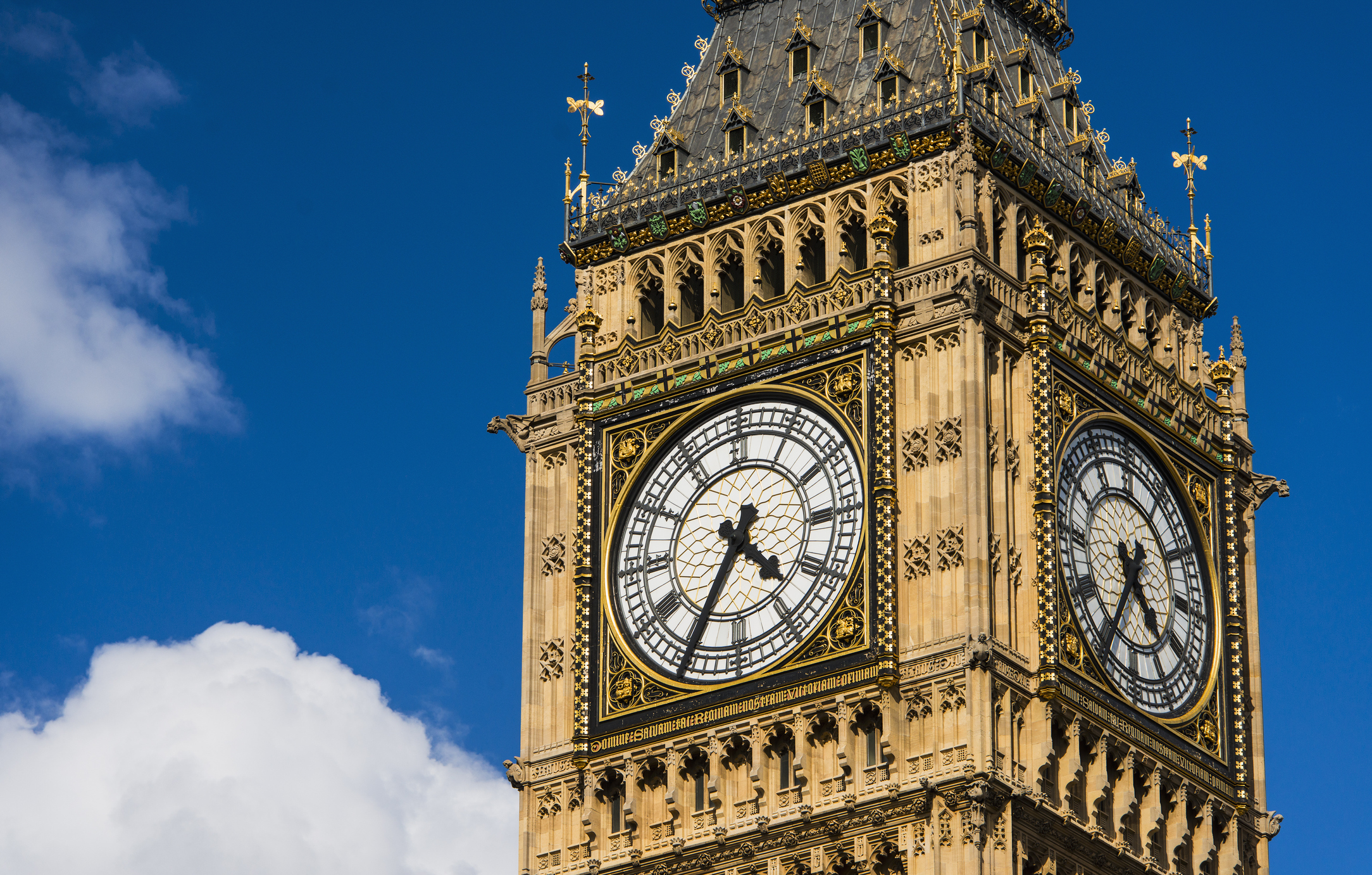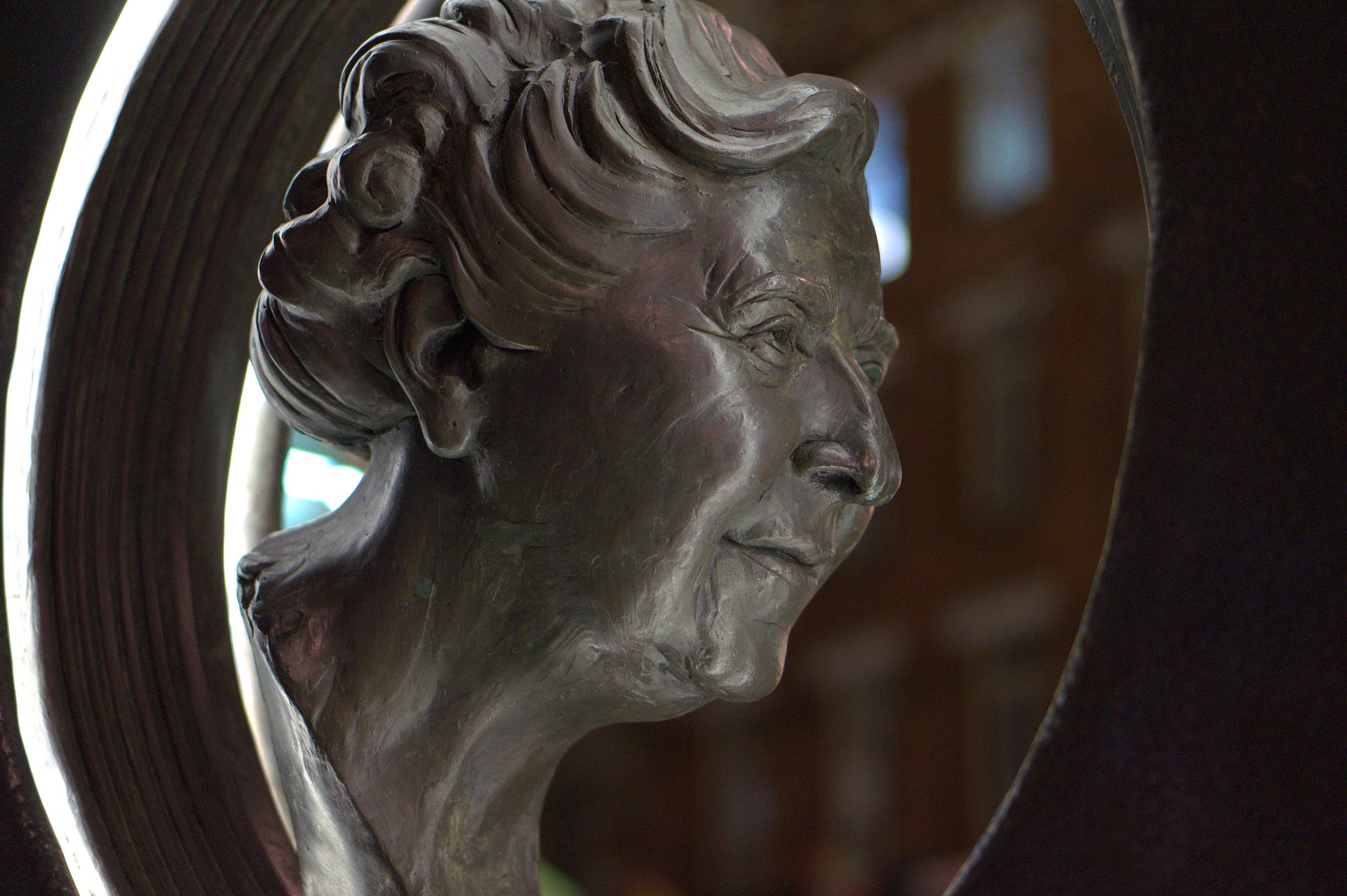They are as clueless as the ancien régime.
Tory Autocracy

The Right should reclaim the populist ground that enabled its biggest victories.
Over the past century, and even before, conservative political movements thrived by challenging the Left’s appeal to the working and middle class. Virtually all the successful movements on the democratic Right—Disraeli’s Tory Democracy to Thatcherism, Reaganism, and even Trumpism—won by establishing a link between conservative policies and upward mobility. Conservatives have done best when they have met the challenge first posed by social democrats.
But today the Right, notably in the UK, is taking on a far more autocratic turn. The Bank of England recently issued a report that essentially told Britain’s middle and working classes that, to meet the challenges of climate change and globalism, they must accept “poverty” as their future fate. “So somehow in the UK,” the Bank’s chief economist Huw Pill told the Columbia Law School, “someone needs to accept that they’re worse off.”
This growing immiseration reflects an economy increasingly dependent on tourism, finance, and services, and decreasingly so on such sectors as fossil fuel production, home construction, and manufacturing. Proponents appear interested in serving big capital while seeking respectability among the mostly woke media and academic elites. Britain is already suffering from unaffordable housing and living standards that have fallen more consistently than any time in the last half century. Meanwhile, middle class taxes have continued to rise. This could well reverse the political trend among the working and middle class who, until recently, have shifted their allegiance from Labour.
Past political success for the Tories came not from pandering to the rich and their obsessions, but after they began limiting the depredations of the liberal industrial elite. Conservatives like Prime Minister Benjamin Disraeli, author of Sybil, a novel detailing the conditions of working class Britain, forged the basis for what became “Tory Democracy,” promoted by Lord Randolph Churchill, who served as Chancellor of the Exchequer. “Tory Democracy,” historian Richard Bourke suggests, “won new constituencies for the Conservatives,” beyond their traditional upper-class base.
Disraeli saw the working class as natural conservatives “in the purest and loftiest sense,” people proud to be British and part of a great Empire. Similarly, Margaret Thatcher, though she accelerated the country’s deindustrialization, supported the notion of “a property owning democracy,” notably for the working class to whom she devolved ownership of council-owned public housing. A product of the middle class, Thatcher appealed to what could be called Britishism, an embrace of national uniqueness, military power, and certain elements of traditional morality, namely the bourgeois virtues of thrift, diligence, and abstemiousness.
Successful conservatives during the period from Richard Nixon’s election in 1968 through Bill Clinton’s reformed liberal renaissance followed a similar approach. To be sure, some populist conservatives appealed to white working-class voters by embracing racial, gender, and cultural grievance. But there was also an aspirational aspect to this turn, as evidenced most in personal terms by Reagan, as Henry Olsen has suggested. The former union leader won by appealing to working- and middle-class aspirations. Unlike today’s free market ideologues, he remained loyal to the legacy of the New Deal, which fostered one of the strongest eras of prosperity in recent times.
These trends on the right often offended more “respectable” Wall Street and City conservatives whose primary commitment lay in serving the demands of big capital. This is the agenda of people like Paul Ryan and much of today’s Tory party, which generally favor the very rich as opposed to Main Street merchants or small capitalists.
In Britain, this is made much worse by the Tory embrace of the extreme climate change activism fashionable among the elite. Rather than seek ways to alleviate warming without impoverishing the population, or find ways to adapt to it, the Tories have adopted sweeping regulatory assaults on virtually every aspect of British life. These policies will, as elsewhere, prove disastrous for the middle and working class. The Net Zero appraisal publicized by the government-funded U.K. FIRES collaborative project suggests that carbon neutrality will require Britain to slash food cooking, heating, and energy by 40 percent by 2050, with calls to eliminate beef and lamb in 30 years, and the end of most flying and shipping.
In the U.S., the conservative autocracy has not embraced apocalyptic climate policies, but is, if anything, more subservient to oligarchic interests. American right-wing autocrats tend to embrace their own “free market” religion, which rejects, among other things, attempts to manage trade, restrict monopoly power, or challenge the repression of free thought, as long as there are big profits to be made.
Like its British counterpart, the American version of Tory autocracy crushes middle- and working-class aspirations. For example, the widespread embrace of the “free-market housing fix” threatens middle class neighborhoods but benefits real estate speculators and financial institutions. In California, oligarchs and deep-pocketed real estate investors finance the YIMBY (“Yes in My Backyard”) movement, which seeks to forcibly densify the single-family dominated suburbs that most Americans, Australians, and British people prefer. Their end game will leave most people stuck as permanent renters in small apartments.
In essence, as former Cato fellow Randal O’Toole notes, the libertarian right has “betrayed” the very middle class that most supports conservative causes. Tory autocrats on both sides of the Atlantic welcome the arrival of a rentership society, where homes, furniture, and other necessities are turned into rental products, offering an endless cashflow to the oligarchs. Large financial institutions like Britain’s Lloyds Bank and U.S. investment managers BlackRock are deeply involved in this process.
This undermines the chances for wealth creation and aspiration for coming generations; homes, for example, account for roughly two-thirds of the wealth of middle-income Americans. The importance of dispersing property was essential to the notions embraced by Thomas Jefferson, James Madison, and John Adams. All considered the over-concentration of property in a few hands as a basic threat to republican institutions, an insight shared by intellectuals like Edmund Burke, Alexis de Tocqueville, and Adam Smith. As Burke put it, what really matters in the end is not ideology but reality: “The circumstances are what render every civil and political scheme beneficial or noxious to mankind.”
Whether here or in Britain, conservatives need to focus more on the interests of both the working class and grassroots capitalists, their natural base. Tory Democracy would confront, rather than kowtow to, the consolidation of corporate power, whether in the tech world or real estate. They need not possess the charm of Reagan or the dynamism of Thatcher, just a political strategy that, as Cambridge historian Richard Bourke puts it, can “reanimate the ghost of Benjamin Disraeli.”
This is very different from the emerging consensus among Tory autocrats that the dole may be the best way to support the new hierarchical order. Libertarian ideologues like former senator Phil Gramm and economist John Early, echoing the current progressive script, suggest “income transfer payments,” essentially a modern version of what Marx scathingly called “the proletarian alms bag,” make our current capitalism acceptable. Rather than promote greater self-reliance and opportunity, the Tory Autocratic approach essentially provide the masses with enough welfare to keep the guillotines at bay, even as living standards, longevity, and literacy all fall.
This, in the U.S. and elsewhere, provides an enormous opening to the Left, which can legitimately argue that it embraced welfarism from the beginning while offering the pleasant prospect of soaking the very rich to pay for the public largesse. After all, what stake do normal people have in bolstering a society dominated by a handful of corporations, investment banks, and well-placed members of the “expert” class? All can be counted on, in the U.S. at least, to rally to Joe Biden next year.
The big question for conservatives—and for that matter traditional liberals like your author— lies in where to place their political loyalties. For the better part of the past half century, the Right has gained by appealing to the working and middle classes; the investment elites may provide money to conservative non-profits and candidates, but their program does not much address the needs of people who work with their hands, own a small shop or a small entrepreneurial start up, or allay the concerns for the more than 70 percent of parents in both countries who, according to Pew, fear for the future of their offspring.
Unfortunately, too many right-wingers think the road to power lies elsewhere, notably by playing cultural politics. But as the consequences of such measures as extreme abortion bans demonstrates, this is no sure way to build an electoral majority. The winning formula for the future lies not just in allegiance to traditional cultural norms, but offering a program that can lead to a better life for most. If conservatives adopt the path of autocracy and reaction, they will be creating their own nightmare, a complete ascendancy of corporate socialism, the preferred result of our elites and the bane of most everyone else.
The American Mind presents a range of perspectives. Views are writers’ own and do not necessarily represent those of The Claremont Institute.
The American Mind is a publication of the Claremont Institute, a non-profit 501(c)(3) organization, dedicated to restoring the principles of the American Founding to their rightful, preeminent authority in our national life. Interested in supporting our work? Gifts to the Claremont Institute are tax-deductible.
The British government has enabled the abuse of tens of thousands of its children.
NatCon London raises unavoidable questions.
Our woke commissars continue their march.
To leave the EU was to return to politics.
The birthplace of environmentalism was built through meticulous application of technology.






